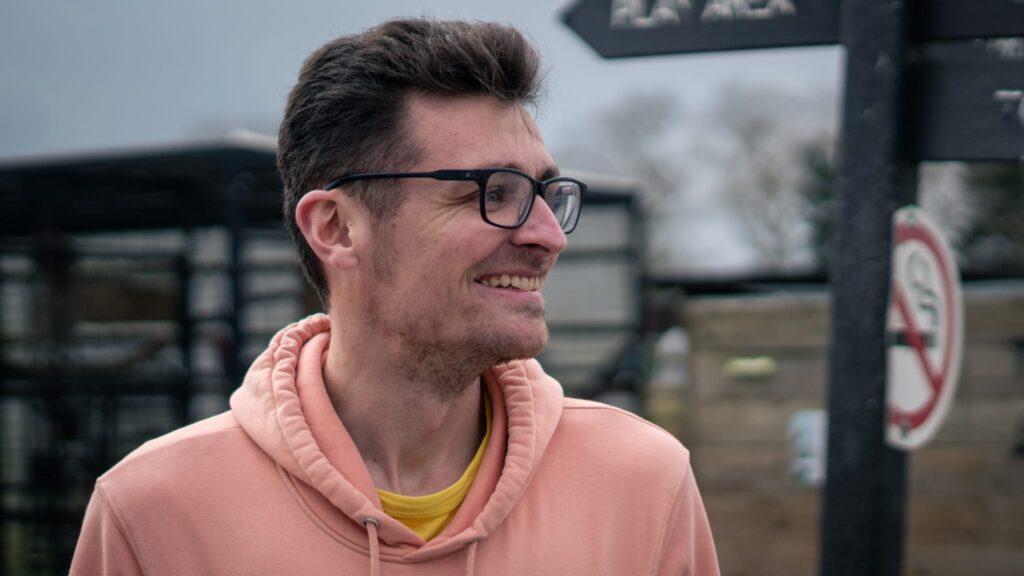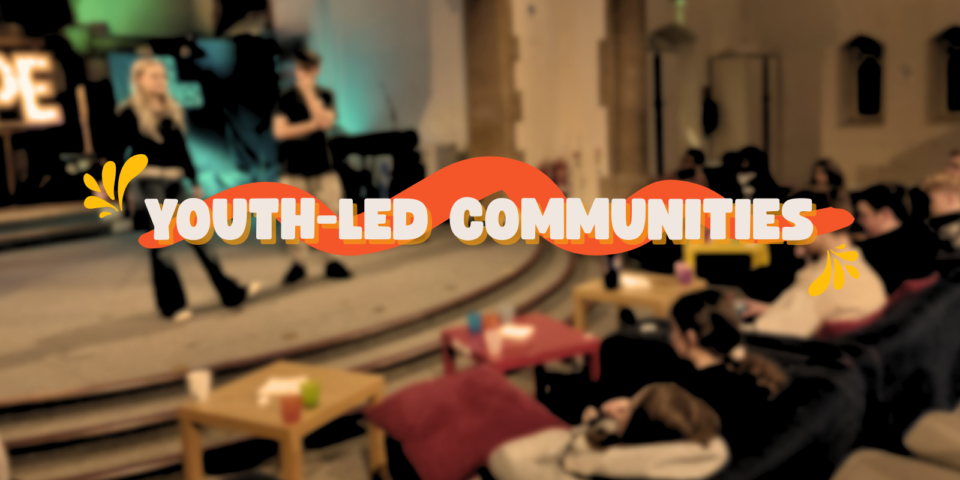Chris Kettel has dedicated his career to youth work, with a focus on creating youth-led community spaces and developing young leaders.
In this interview, we explore Chris’ journey, the impact of the Cultivate course, his leadership influences, and how he’s trying to collaborate with others to create a sustainable model for youth leadership development.

Can you share the story of how you first felt called to work with youth in the church and what inspired you to take on your current role at Hope Hounslow?
‘Absolutely. I first felt the call around the time I was 16 or 17: I’d grown up going to church in Hounslow, and at that time, our church’s youth group had fizzled out as everyone grew up and left. I started looking at the younger people and wondered what would be left for them if, at the end of their youth, they felt there was nothing left for them in the church. I really felt called to do something about that, but I didn’t respond for a few more years.
Initially, I began working in a garden centre, but that sense of calling was still in the back of my mind. It was around the time I was 23 that I did something about it. I went to Saint Paul’s Hounslow West (now known as Hope Hounslow), which had been planted about a year and a half before. I wanted to get involved, serve, get to know the church community, and begin to connect with the young people already attending.
What inspired me to take on my current position at Hope Hounslow was not only the solid leadership under Libby, who was our vicar at the time, but also the sense of calling the church plant had. The vision of the team matched my call to youth work in Hounslow. For the first year, I served on the kids’ team and then transitioned to the youth team for about a year and a half before deciding to study youth work and theology. That was my way into learning and taking the next step.’
What do you think has changed since you started youth work in terms of your leadership style and goals?
‘For a while I’ve been having conversations with someone who has helped me think about my leadership style. We’ve been discussing the importance of owning who we are and what we aim to achieve on Fridays with the youth who come. Initially, our model was engaging people on the estate on Tuesdays and inviting them on Fridays to learn more about Jesus. But we found this approach diluted both days because we weren’t fully sharing our faith on Tuesdays, and Fridays felt like it needed to be more comfortable for them. We decided to shift our focus and create a youth-led space on Fridays for deeper faith exploration and ministry. This meant changing who we invited and focusing on creating a strong community within the group.’
What’s changed about the Friday night youth group now?
After years of considering leadership, we’ve realised we have around ten leaders within the group. Our Friday night youth group is now quite youth-led, particularly by the sixth formers. They handle a lot of planning, hosting, games, talks, and cooking. We’ve recently completed Youth Alpha and are in a transition phase, figuring out the next steps. We don’t want to return to the previous lack of leadership identity.
This youth-led approach has been transformative for Fridays. The young people now take responsibility for leading sessions and inviting new members. They no longer wait for me to ask them to do something; they feel trusted and responsible. It’s fostered a sense of leadership and ownership among them. Additionally, quieter young people are more comfortable sharing what’s going on with them, and we’ve seen creative expressions of faith, like a video of the Easter story that one of the boys has made. It’s been encouraging to see their growth and willingness to step up.
What would you say to other churches looking to start or develop their youth programmes?
I think there has to be some element of long-term thinking to it, whether it’s them personally or maybe someone else within their church currently, and I think that comes through prayer and listening to God. For any church or someone looking to start youth work in their church, it’s important to have long-term vision and values that remain consistent. The most effective leaders we have come from within the community, and I believe God calls people where they are for a reason.
What impact has the Cultivate course had on your skills, or methods, in engaging with the young people you work with so far?
I’ve just completed the training phase, which is a six-week long weekly training programme and we’re about to start the six-month phase of coaching. The biggest takeaway so far for me was in Session 2, which was on self-management and managing up. We looked at our week, what we’re currently doing, and introduced the slot system, which is a theory that we have three slots every single day, and only two of those should be used for work or ministry. The other slot should be for family time or friends. It challenged me to think about whether I was tipping over into three slots a day, which isn’t sustainable long-term. It helped me manage my week effectively and prioritise my tasks better.
Looking back, what are you most proud of in your work with young people so far?
I’m proud of being consistent. Sometimes it comes naturally, sometimes I have to force myself, but I’ve been able to be consistent in different ways for different young people. For example, meeting one-on-one, praying together, and maintaining relationships even when they leave for university. Consistency has been a big thing for our youth ministry, along with embracing times when things haven’t gone well and focusing on the positives.
What are your hopes and dreams for the future of the church’s youth work?
I hope there will be more of young people being allowed to lead as they are. It’s important to give them the space to lead out of who they are and not to fit into a predefined model of leadership.
Takeaway Tips from Chris’ Interview
- Embrace long-term thinking and vision for youth work: This involves being patient, taking time to build relationships, and maintaining consistent vision and values. Long-term thinking ensures that youth programmes are sustainable and impactful.
- Empower young people to lead and give them space to grow: Creating a youth-led environment allows young people to take ownership and responsibility for their group. Young leaders feel trusted and active in inviting new members and leading sessions. Empowering youth fosters leadership skills and a sense of community.
- Recognise the importance of consistency in building relationships: Consistency is key in youth work. Be consistent in different ways for different young people, whether through meetings, praying together, or maintaining relationships even when they leave for university. Consistency builds trust and strengthens bonds.
What is the Cultivate course?
Cultivate is a 6-week course for employed children, youth or family workers (in the Diocese of London) that combines coaching, self-paced learning and group reflection. It aims to help employed workers develop a healthy foundation of practices to thrive in their work, so that they have a greater impact on the community they serve.
